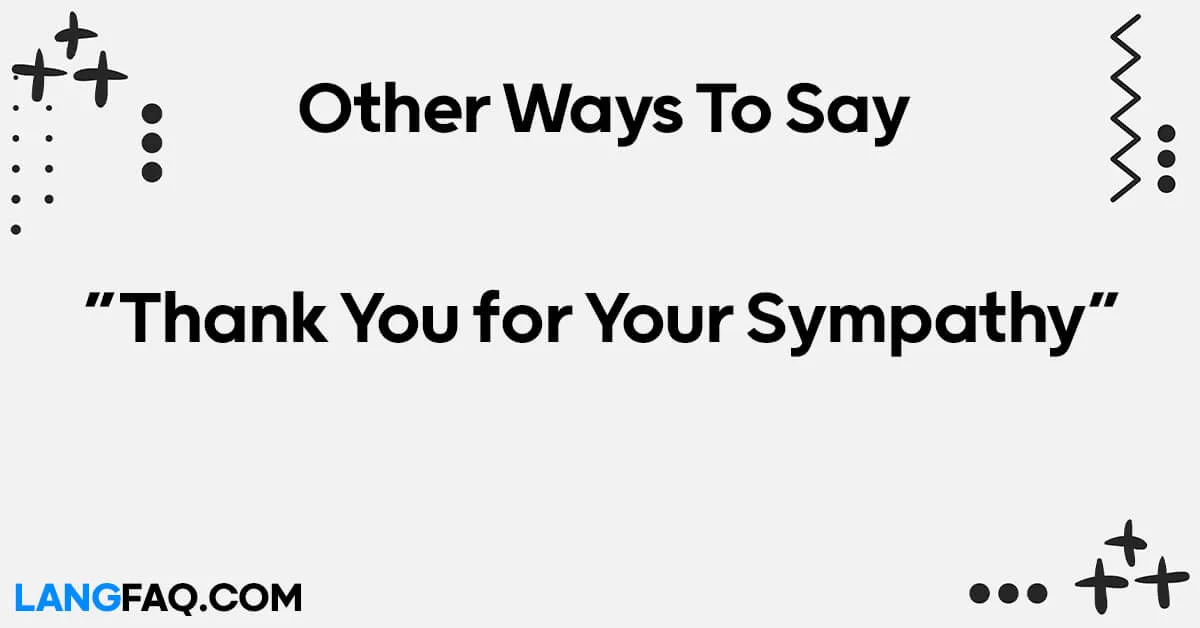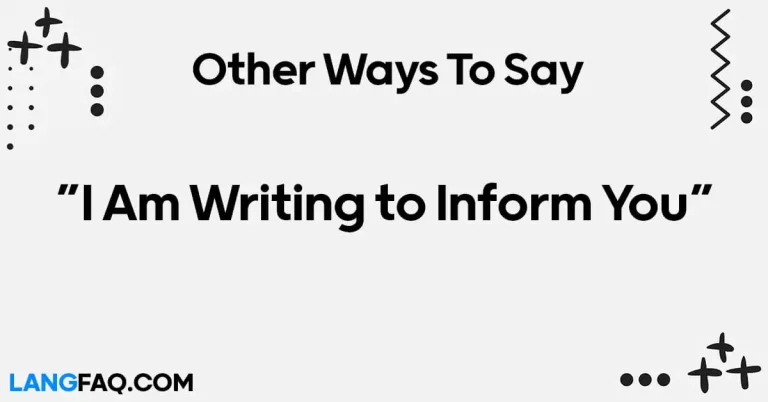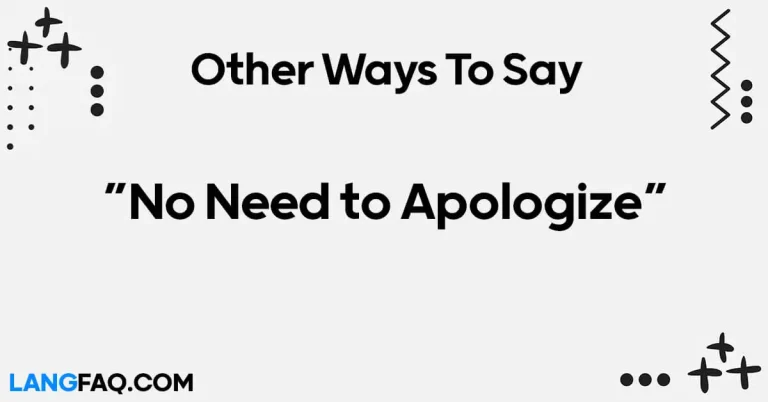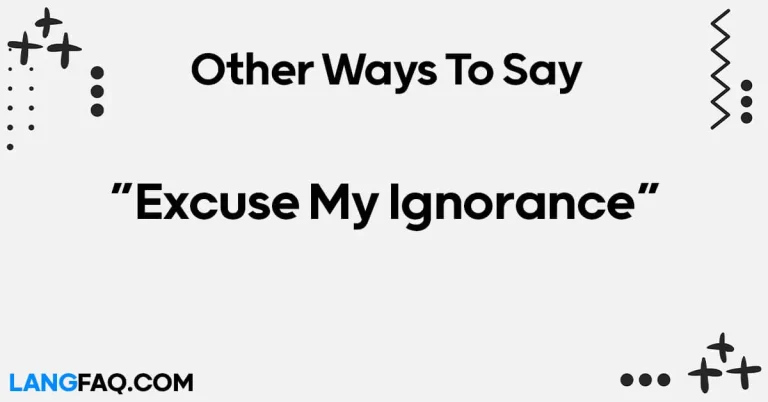In times of grief, acknowledging the sympathy of others is essential. Discovering meaningful ways to say “Thank You for Your Sympathy” not only conveys appreciation but also helps foster connections. This article explores 12 diverse expressions of gratitude, offering insight into navigating delicate moments with grace and sincerity.
12 Other Ways to Say “Thank You for Your Sympathy”
- Gratitude for Your Comfort
- Appreciation for Your Support
- Thanks for Your Thoughtfulness
- Acknowledging Your Kindness
- Expressing Deep Appreciation
- Recognition of Your Empathy
- Heartfelt Thanks for Your Compassion
- Grateful for Your Understanding
- Conveying Sincere Appreciation
- Utmost Thanks for Your Condolences
- Warm Appreciation for Your Sympathy
- Thankful for Your Caring Gestures
| Expression | Meaning | Example |
|---|---|---|
| Gratitude for Your Comfort | Thankful for the solace provided | “I extend my gratitude for your comforting presence.” |
| Appreciation for Your Support | Recognizing assistance and encouragement | “I want to express my appreciation for your unwavering support.” |
| Thanks for Your Thoughtfulness | Acknowledging considerate actions | “Your thoughtfulness during this time means a lot to me.” |
| Acknowledging Your Kindness | Recognizing and appreciating kindness | “Acknowledging your kindness brings comfort to my heart.” |
| Expressing Deep Appreciation | Conveying profound thanks | “I’m expressing my deep appreciation for your heartfelt condolences.” |
| Recognition of Your Empathy | Acknowledging understanding and empathy | “Your recognition of my pain and empathy is truly comforting.” |
| Heartfelt Thanks for Your Compassion | Conveying sincere thanks for compassion | “Heartfelt thanks for your compassion in this difficult time.” |
| Grateful for Your Understanding | Thankful for comprehension and empathy | “I’m grateful for your understanding during this challenging period.” |
| Conveying Sincere Appreciation | Expressing genuine and honest thanks | “Conveying sincere appreciation for your support and kindness.” |
| Utmost Thanks for Your Condolences | Offering the highest level of thanks | “I extend my utmost thanks for your heartfelt condolences.” |
| Warm Appreciation for Your Sympathy | Expressing warm thanks for sympathy | “Warm appreciation for your sympathy in this time of loss.” |
| Thankful for Your Caring Gestures | Appreciation for thoughtful actions | “Thankful for your caring gestures that eased my sorrow.” |
These diverse expressions provide a nuanced palette for conveying gratitude in times of sorrow. Whether acknowledging kindness, recognizing empathy, or expressing deep appreciation, each phrase carries a unique sentiment. Tailoring your response with these alternatives ensures your gratitude is heartfelt, sincere, and precisely matches the depth of support received.
Is It Correct to Say “Thank You for Your Sympathy”?
Yes, saying “Thank You for Your Sympathy” is absolutely correct and appropriate. When someone offers their sympathy or condolences during a difficult time, expressing gratitude is a heartfelt way to acknowledge their support. This phrase conveys appreciation for the kind and empathetic gestures or words extended to you.
Usage in Different Contexts:
- Formal Setting: “I wanted to formally express my gratitude to each of you. Thank you for your sympathy during this challenging period.”
- Informal Setting: “Hey, I just wanted to say thank you for your sympathy. Your support means a lot to me.”
Example Sentence: “Thank you for your sympathy during the loss of my loved one. Your comforting words and gestures have provided immense solace during this difficult time.”
Email Sample:
Subject: Heartfelt Thanks for Your Sympathy Dear [Name],
I wanted to take a moment to express my heartfelt thanks for your sympathy. Your support during [situation] has been a source of comfort, and I deeply appreciate it.
With gratitude, [Your Name]
Variations:
- Colleagues: “Appreciation for Professional Sympathy”
- Friends: “Thanks for Your Sympathy, It Means a Lot”
- Mentor-Mentee: “Grateful for Your Mentorship Sympathy”
Dictionary Insight: “Sympathy” originates from the Greek word “symphathēs,” meaning ‘having a fellow feeling.’ Saying “Thank You for Your Sympathy” acknowledges the shared sentiments and understanding offered by others during challenging times.
Professional Mail Example With “Thank You for Your Sympathy”
Subject: Gratitude for Your Sympathy and Support
Dear [Recipient’s Name],
I hope this message finds you well. I wanted to take a moment to express my heartfelt thanks for the sympathy and support you extended during [specific situation]. Your compassionate words and thoughtful gestures have been a source of comfort during this challenging time.
Your kindness has not gone unnoticed, and I am sincerely grateful for the understanding and warmth you’ve shared. It has made a significant difference and has provided solace amid the difficult circumstances.
During times like these, the support of colleagues like you goes beyond professional courtesy, and I truly appreciate the sense of camaraderie we have within our team.
Once again, thank you for your sympathy, compassion, and unwavering support. It means a great deal to me.
Warm regards,
[Your Full Name] [Your Position] [Your Company]
Gratitude for Your Comfort
Expressing appreciation for the solace provided during difficult times is a nuanced way to convey your thanks. This phrase is suitable for both formal and informal contexts, emphasizing the comfort received and acknowledging the supportive role played by the person.
Usage:
- Formal: “I wish to extend my gratitude for the comfort you provided during the memorial service. Your presence eased the burden of sorrow.”
- Informal: “Thanks a lot for being there. Your comfort meant a great deal to me.”
Example Sentence: “Your comforting words and supportive presence were a source of immense gratitude during this challenging period.”
Email Sample:
Subject: Heartfelt Thanks for Your Comfort Dear [Name],
I wanted to express my heartfelt thanks for the comfort you provided during [Name]’s memorial service. Your presence was a source of solace during a difficult time, and I deeply appreciate your support.
Warm regards, [Your Name]
Variations:
- Colleagues: “Appreciation for Your Supportive Presence”
- Friends: “Thanks for Being a Comforting Friend”
- Mentor-Mentee: “Grateful for Your Guiding Comfort”
Dictionary Insight: The term “comfort” is derived from the Latin word “comfortare,” meaning “to strengthen much.” In expressing gratitude for comfort, one acknowledges not just solace but the strengthening of emotional resilience provided by the supportive individual.
Appreciation for Your Support
Acknowledging assistance and encouragement is essential, especially when navigating challenging circumstances. This phrase can be adapted for various relationships, emphasizing the significance of the support received.
Usage:
- Formal: “I would like to express my sincere appreciation for the unwavering support you’ve provided throughout this difficult period.”
- Informal: “Thanks a million for your support. It means more than words can convey.”
Example Sentence: “Your constant support has been a pillar of strength, and I appreciate it more than words can express.”
Email Sample:
Subject: Grateful for Your Ongoing Support Dear [Name],
I wanted to take a moment to express my gratitude for your ongoing support during [situation]. Your encouragement and assistance have been invaluable, and I am truly grateful.
Best regards, [Your Name]
Variations:
- Colleagues: “Acknowledgment of Professional Support”
- Friends: “Thanks for Always Having My Back”
- Mentor-Mentee: “Appreciation for Your Guidance and Support”
Dictionary Insight: “Support” comes from the Latin word “supportare,” meaning “to convey, carry, or bring up.” Acknowledging support is not just recognizing the actions but appreciating the shared burden and assistance provided.
Thanks for Your Thoughtfulness
This phrase goes beyond conventional expressions of thanks, focusing on the considerate actions or gestures extended during a challenging period.
Usage:
- Formal: “I wish to express my gratitude for your thoughtfulness during this sensitive time. Your attention to detail did not go unnoticed.”
- Informal: “Thanks a bunch for your thoughtfulness. It truly made a difference.”
Example Sentence: “Your thoughtfulness in bringing over a warm meal was a gesture that touched my heart deeply.”
Email Sample:
Subject: Heartfelt Thanks for Your Thoughtfulness Dear [Name],
I wanted to send a note to express my heartfelt thanks for your thoughtfulness. The [gift/act of kindness] was incredibly touching and much appreciated during this difficult time.
Warm regards, [Your Name]
Variations:
- Colleagues: “Recognition of Professional Consideration”
- Friends: “Thanks for Being So Considerate”
- Mentor-Mentee: “Appreciation for Your Thoughtful Guidance”
Dictionary Insight: “Thoughtfulness” is derived from the Middle English word “thoghtfulnesse,” emphasizing consideration and attentiveness. Expressing thanks for thoughtfulness appreciates the mindfulness and care shown by the individual.
Acknowledging Your Kindness
This phrase centers on recognizing and appreciating the kindness demonstrated by others during a challenging period.
Usage:
- Formal: “I am writing to formally acknowledge your kindness during [specific situation]. Your compassionate actions did not go unnoticed.”
- Informal: “Hey, just wanted to say thanks for your kindness. It meant a lot.”
Example Sentence: “Your kindness in sending flowers brought a ray of light into an otherwise difficult time.”
Email Sample:
Subject: Acknowledging Your Kindness Dear [Name],
I wanted to take a moment to acknowledge and thank you for your kindness during [situation]. Your thoughtful gestures have been a source of comfort and solace.
Best regards, [Your Name]
Variations:
- Colleagues: “Appreciation for Professional Kindness”
- Friends: “Thanks for Your Always-Kind Heart”
- Mentor-Mentee: “Acknowledging Your Mentorship Kindness”
Dictionary Insight: “Kindness” is rooted in the Old English word “cȳndnes,” embodying natural character and benevolence. Acknowledging kindness goes beyond mere politeness, recognizing the inherent goodness in the actions of others.
Expressing Deep Appreciation
When you want to go beyond standard gratitude and truly convey the profound impact of someone’s support, expressing deep appreciation becomes essential.
Usage:
- Formal: “Allow me to express my deep appreciation for your heartfelt condolences. Your words provided solace during this trying time.”
- Informal: “I can’t thank you enough for your support. Your deep appreciation for my feelings means a lot.”
Example Sentence: “Your deep appreciation for the gravity of the situation was evident in the sincere condolences you offered.”
Email Sample:
Subject: Deep Appreciation for Your Condolences Dear [Name],
I wanted to reach out and convey my deep appreciation for the heartfelt condolences you shared. Your understanding of the situation brought comfort during this challenging time.
With gratitude, [Your Name]
Variations:
- Colleagues: “Acknowledging Deep Professional Appreciation”
- Friends: “Grateful for Your Deep Understanding”
- Mentor-Mentee: “Expressing Deep Appreciation for Your Guidance”
Dictionary Insight: “Appreciation” stems from the Late Middle English word “appreciat,” meaning to appraise or estimate highly. Expressing deep appreciation involves recognizing the true value and impact of the support received.
Recognition of Your Empathy
When acknowledging understanding and empathy, this phrase is fitting, as it specifically highlights the emotional connection and compassion offered by others.
Usage:
- Formal: “I extend my gratitude for the recognition of your empathy during this trying period. Your understanding has been a source of great comfort.”
- Informal: “Thanks for being so empathetic. Your recognition of what I’m going through means a lot.”
Example Sentence: “Your recognition of my pain and empathy is truly comforting during these difficult times.”
Email Sample:
Subject: Grateful for Your Empathy Dear [Name],
I wanted to express my sincere gratitude for the recognition of your empathy. Your understanding and compassion have been a great comfort to me.
Warm regards, [Your Name]
Variations:
- Colleagues: “Appreciation for Professional Empathy”
- Friends: “Thanks for Your Empathetic Heart”
- Mentor-Mentee: “Recognizing Your Mentorship Empathy”
Dictionary Insight: “Empathy” originates from the Greek word “empatheia,” translating to affection or passion. Recognizing empathy involves acknowledging the emotional understanding and shared sentiments provided by others.
Heartfelt Thanks for Your Compassion
Expressing sincere thanks for compassion adds an extra layer of warmth and understanding to your gratitude, emphasizing the kindness and caring nature of the support received.
Usage:
- Formal: “I extend heartfelt thanks for your compassion during this difficult time. Your caring gestures have made a significant impact.”
- Informal: “Thanks a ton for your compassion. It really means the world to me.”
Example Sentence: “Your heartfelt thanks for your compassion during this challenging period.”
Email Sample:
Subject: Heartfelt Thanks for Your Compassion Dear [Name],
I wanted to convey my heartfelt thanks for your compassion. Your caring gestures have made a significant impact during this challenging time.
With appreciation, [Your Name]
Variations:
- Colleagues: “Appreciation for Professional Compassion”
- Friends: “Grateful for Your Compassionate Soul”
- Mentor-Mentee: “Heartfelt Thanks for Your Mentorship Compassion”
Dictionary Insight: “Compassion” comes from the Latin word “compati,” meaning to suffer together. Expressing thanks for compassion involves acknowledging the shared emotional experience and support provided by others.
Grateful for Your Understanding
When gratitude extends beyond mere acknowledgment, expressing thanks for understanding becomes crucial. This phrase highlights the value of someone comprehending the emotional nuances of a difficult situation.
Usage:
- Formal: “I am sincerely grateful for your understanding during this challenging period. Your patience and support have been invaluable.”
- Informal: “Thanks a million for your understanding. It truly means a lot to me.”
Example Sentence: “Your understanding and support have been a lifeline during this challenging period.”
Email Sample:
Subject: Grateful for Your Understanding Dear [Name],
I wanted to express my heartfelt gratitude for your understanding during [situation]. Your patience and support have been invaluable, and I am sincerely grateful.
Warm regards, [Your Name]
Variations:
- Colleagues: “Appreciation for Professional Understanding”
- Friends: “Thanks for Your Always-Understanding Ear”
- Mentor-Mentee: “Grateful for Your Mentorship Understanding”
Dictionary Insight: “Understanding” is rooted in the Old English word “understandan,” meaning to comprehend or grasp. Expressing thanks for understanding involves recognizing the depth of comprehension and support provided by others.
Conveying Sincere Appreciation
Going beyond generic expressions, conveying sincere appreciation emphasizes the genuineness of your thanks. This phrase ensures that your gratitude is not just a formality but a heartfelt acknowledgment.
Usage:
- Formal: “I wish to convey my sincere appreciation for your support during this challenging time. Your kindness has not gone unnoticed.”
- Informal: “I can’t thank you enough. Your sincere appreciation for what I’m going through means a lot.”
Example Sentence: “Conveying sincere appreciation for your unwavering support during these trying times.”
Email Sample:
Subject: Sincere Appreciation for Your Support Dear [Name],
I wanted to take a moment to convey my sincere appreciation for your support. Your kindness and understanding have been a tremendous source of comfort.
With gratitude, [Your Name]
Variations:
- Colleagues: “Acknowledgment of Professional Appreciation”
- Friends: “Thanks for Your Sincere Friendship”
- Mentor-Mentee: “Appreciation for Your Mentorship Sincerity”
Dictionary Insight: “Sincere” originates from the Latin word “sincerus,” meaning pure or clean. Conveying sincere appreciation involves expressing gratitude in its purest form, devoid of any pretense.
Utmost Thanks for Your Condolences
When ordinary expressions fall short, emphasizing your utmost thanks for condolences becomes crucial. This phrase conveys the depth of your appreciation, leaving no room for doubt regarding the significance of the support received.
Usage:
- Formal: “I extend my utmost thanks for your heartfelt condolences. Your support during this difficult time has been invaluable.”
- Informal: “I can’t express enough thanks. Your utmost thanks for your condolences mean the world to me.”
Example Sentence: “Utmost thanks for the condolences that brought solace during this challenging period.”
Email Sample:
Subject: Utmost Thanks for Your Condolences Dear [Name],
I wanted to express my utmost thanks for your heartfelt condolences. Your support during this difficult time has been invaluable, and I am deeply grateful.
Warm regards, [Your Name]
Variations:
- Colleagues: “Appreciation for Professional Condolences”
- Friends: “Grateful for Your Utmost Understanding”
- Mentor-Mentee: “Heartfelt Thanks for Your Mentorship Condolences”
Dictionary Insight: “Utmost” comes from the Middle English word “utemoste,” indicating the farthest or most distant. Using utmost thanks conveys the depth and extremity of gratitude, leaving no room for doubt.
Warm Appreciation for Your Sympathy
When expressing thanks for sympathy, infusing warmth into your words adds a personal touch. This phrase emphasizes not just gratitude but the emotional connection and understanding conveyed through sympathy.
Usage:
- Formal: “I extend warm appreciation for your sympathy during this period of loss. Your compassionate gestures have been a source of comfort.”
- Informal: “Sending you warm thanks for your sympathy. It truly means a lot to me.”
Example Sentence: “Your warm appreciation for the sympathy shared during this time of loss.”
Email Sample:
Subject: Warm Appreciation for Your Sympathy Dear [Name],
I wanted to extend warm appreciation for your sympathy. Your compassionate gestures have been a source of comfort during this challenging time.
With warmth, [Your Name]
Variations:
- Colleagues: “Acknowledgment of Professional Sympathy”
- Friends: “Thanks for Your Warm and Caring Heart”
- Mentor-Mentee: “Appreciation for Your Mentorship Sympathy”
Dictionary Insight: “Warmth” in this context signifies the genuine and caring nature of the sympathy offered. Warm appreciation for sympathy emphasizes the emotional connection fostered through compassionate gestures.
Thankful for Your Caring Gestures
When actions speak louder than words, expressing thanks for caring gestures becomes essential. This phrase recognizes not just the words of sympathy but the thoughtful actions that accompany them.
Usage:
- Formal: “I wish to express my gratitude for your caring gestures during this challenging time. Your thoughtful actions have not gone unnoticed.”
- Informal: “Big thanks for your caring gestures. It really touched my heart.”
Example Sentence: “Thankful for your caring gestures that eased my sorrow during this challenging period.”
Email Sample:
Subject: Thankful for Your Caring Gestures Dear [Name],
I wanted to express my sincere thanks for your caring gestures. Your thoughtful actions have made a significant difference during this difficult time.
With gratitude, [Your Name]
Variations:
- Colleagues: “Appreciation for Professional Caring Gestures”
- Friends: “Thanks for Being So Thoughtful and Caring”
- Mentor-Mentee: “Grateful for Your Mentorship Caring Gestures”
Dictionary Insight: “Caring” involves showing kindness and concern for others. Thanking someone for caring gestures goes beyond mere sympathy, acknowledging the tangible and thoughtful actions taken to provide comfort.
FAQs
What are some unique ways to express appreciation during difficult times?
Expressing heartfelt appreciation involves acknowledging the genuine impact of the support received. Share specific instances that touched your heart, creating a more personalized and sincere response.
How can I go beyond conventional expressions of thanks?
Move beyond conventional expressions by acknowledging the support with genuine gratitude. Highlight specific gestures or words that provided comfort during a difficult period to make your acknowledgment resonate with authenticity.
Is it important to convey the depth of gratitude during challenging times?
Yes, conveying the depth of gratitude is crucial. Use language that reflects the profound impact of the support, leaving the reader with a sense of the significance of their gestures.
What role do gestures play in expressing thanks for sympathy?
Actions speak louder than words, and thoughtful gestures can enhance your expressions of thanks. Consider sending handwritten notes, small gifts, or participating in acts of kindness to show your appreciation.
How can I express sincere thanks without sounding generic?
Sincerity is key when expressing gratitude. Avoid generic phrases and focus on genuine sentiments. A sincere “Thank You” carries more weight and reassures those offering support that their efforts were truly appreciated.
How can I find positivity in sympathy received during challenging times?
Find positivity in the sympathy received by highlighting the positive impact of the support. Instead of focusing solely on the difficult circumstances, emphasize the uplifting aspects to express thanks and uplift the spirits of those offering comfort.
Conclusion
Navigating expressions of gratitude during challenging times requires thoughtfulness and sincerity. These 12 ways to say “Thank You for Your Sympathy” provide a comprehensive guide for conveying appreciation with depth and authenticity. Remember, each gesture, word, or action can contribute to building meaningful connections during moments of grief.







